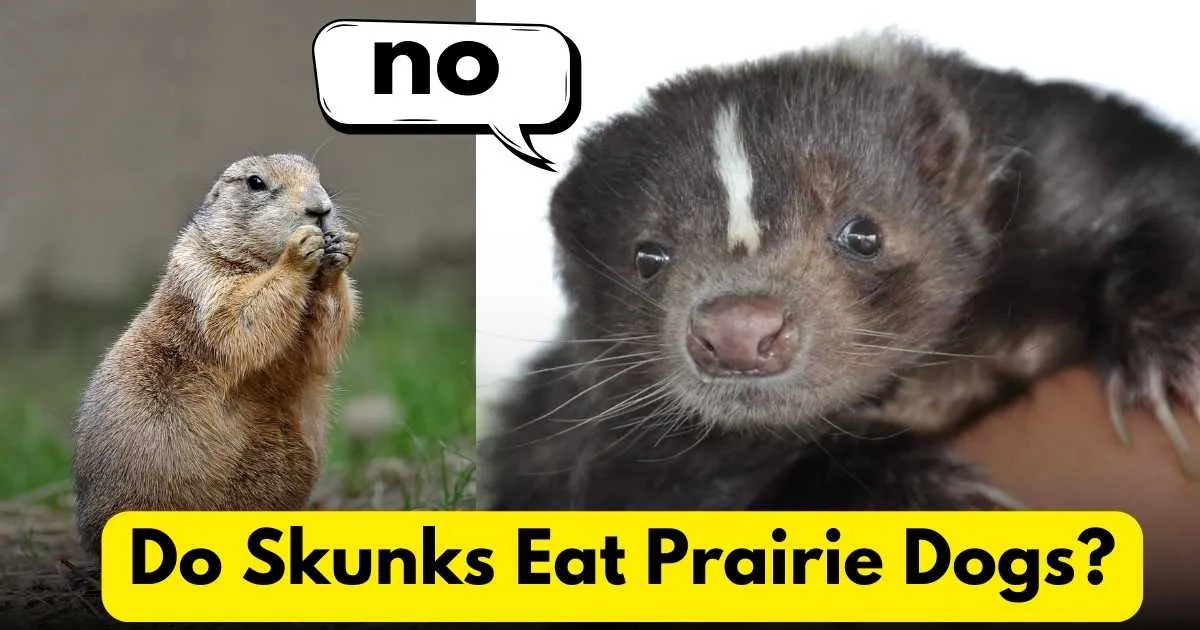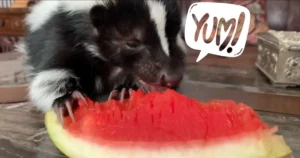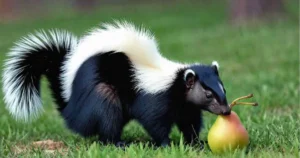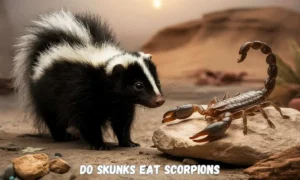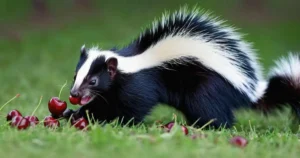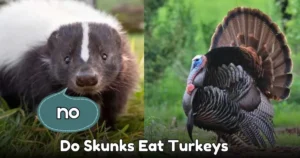Do Skunks Eat Prairie Dogs?
While skunks are omnivores with a varied diet, prairie dogs are not typically on their menu. Skunks prefer smaller, easier-to-capture prey like insects, grubs, and small rodents. However, they may opportunistically eat young or injured prairie dogs if the opportunity arises. Let’s explore why skunks generally avoid prairie dogs and the broader context of their dietary habits.
Why Skunks Rarely Hunt Prairie Dogs
Size and Behavior
Prairie dogs are larger than most of the prey skunks prefer. They also live in well-defended colonies, making them harder to hunt. Skunks, being solitary hunters, avoid conflicts with groups of animals that can fight back or escape quickly.
Habitat and Activity Mismatch
Skunks are nocturnal, while prairie dogs are diurnal (active during the day). This mismatch reduces the likelihood of encounters.
Preferred Prey
Skunks target prey they can easily overpower or forage for, such as insects or small mammals. Hunting prairie dogs would require more effort than skunks typically exert.
Do Skunks Ever Eat Prairie Dogs?
While not common, skunks may eat prairie dogs in specific situations:
Scavenging: Skunks may feed on prairie dog carcasses if they come across them, showcasing their opportunistic feeding behavior.
Young Prairie Dogs: Juvenile or weak prairie dogs might fall prey to skunks, especially if they venture out of the safety of their burrows.
Food Scarcity: In times of limited resources, skunks may expand their diet to include less typical prey, such as prairie dogs.
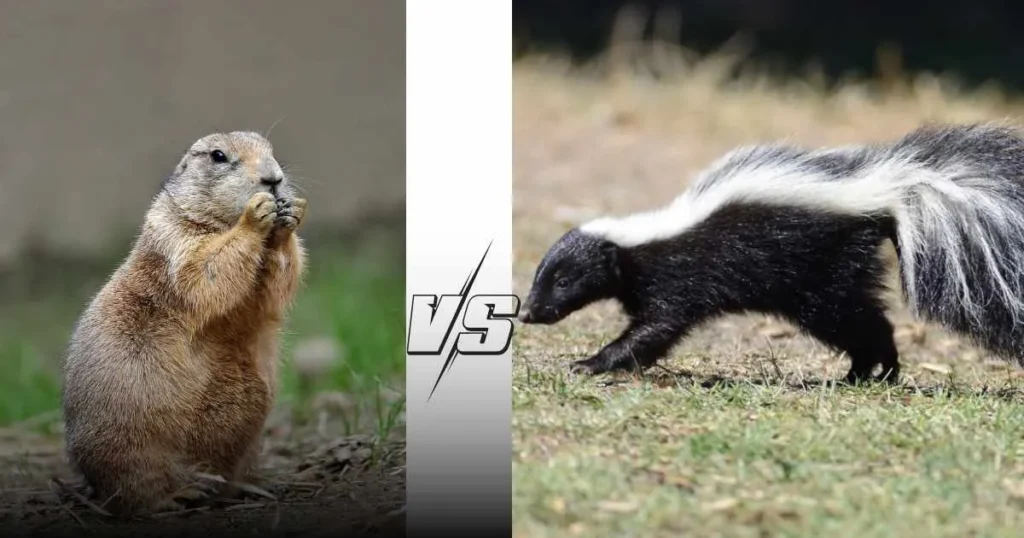
The Role of Skunks in the Ecosystem
Skunks are essential for maintaining ecological balance by controlling pest populations and scavenging. Their diet helps regulate:
- Insect Populations: Skunks consume garden and crop pests, such as beetles and larvae.
- Rodent Numbers: By preying on small rodents, skunks limit potential damage to crops and ecosystems.
- Seed Dispersal: Consuming fruits and seeds helps plants spread and thrive.
While they may occasionally interact with prairie dogs, skunks primarily focus on easier and more accessible food sources.
Skunks and Prairie Dogs in Shared Habitats
In grasslands and prairies, skunks and prairie dogs coexist, but their interactions are minimal. Here’s why:
Prairie Dog Defense Mechanisms
- Prairie dogs live in colonies with a network of burrows, offering protection from predators.
- They use vocal alarms to warn their group of approaching threats.
Skunk Hunting Strategies
They rarely venture into prairie dog colonies due to the risks of group defense.
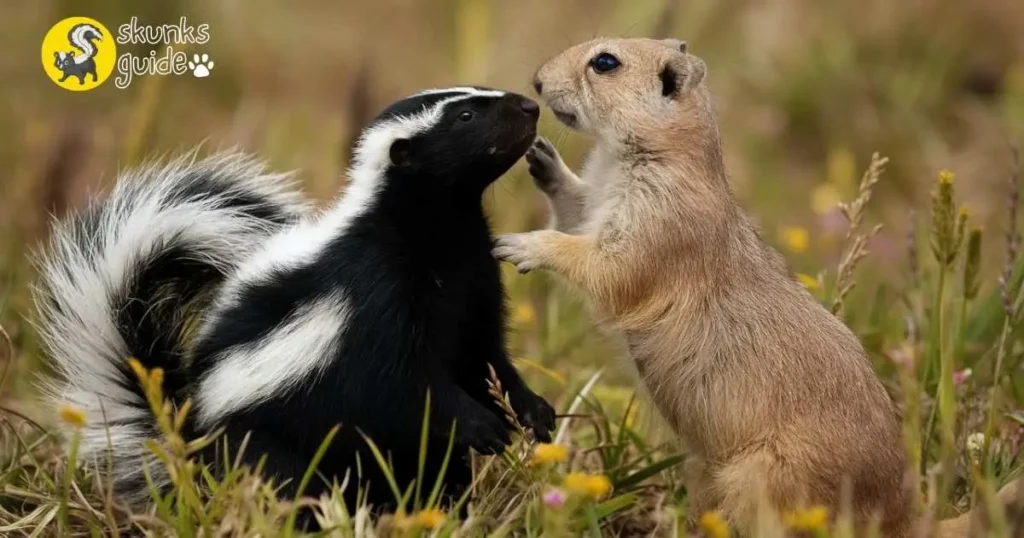
Frequently Asked Questions
1. Do Skunks Eat Prairie Dogs Regularly?
No, prairie dogs are not a regular part of a skunk’s diet. Skunks prefer smaller prey and rarely hunt larger animals like prairie dogs.
2. Are Skunks a Threat to Prairie Dog Colonies?
Skunks pose minimal threat to prairie dog colonies. While they may scavenge or opportunistically prey on young or sick prairie dogs, their impact is negligible compared to other predators like coyotes or hawks.
3. What Predators Commonly Hunt Prairie Dogs?
Prairie dogs face predation from:
- Coyotes and Foxes
- Hawks and Eagles
- Badgers and Bobcats
Conclusion
Skunks are opportunistic omnivores that rarely eat prairie dogs. While they might prey on young or vulnerable prairie dogs in specific situations, their diet primarily consists of insects, small rodents, and fruits. Understanding the dynamics between skunks and prairie dogs helps highlight the balance of predator-prey interactions within their shared ecosystems. Skunks may not target prairie dogs often, but their role as pest controllers and scavengers is vital to maintaining ecological harmony

